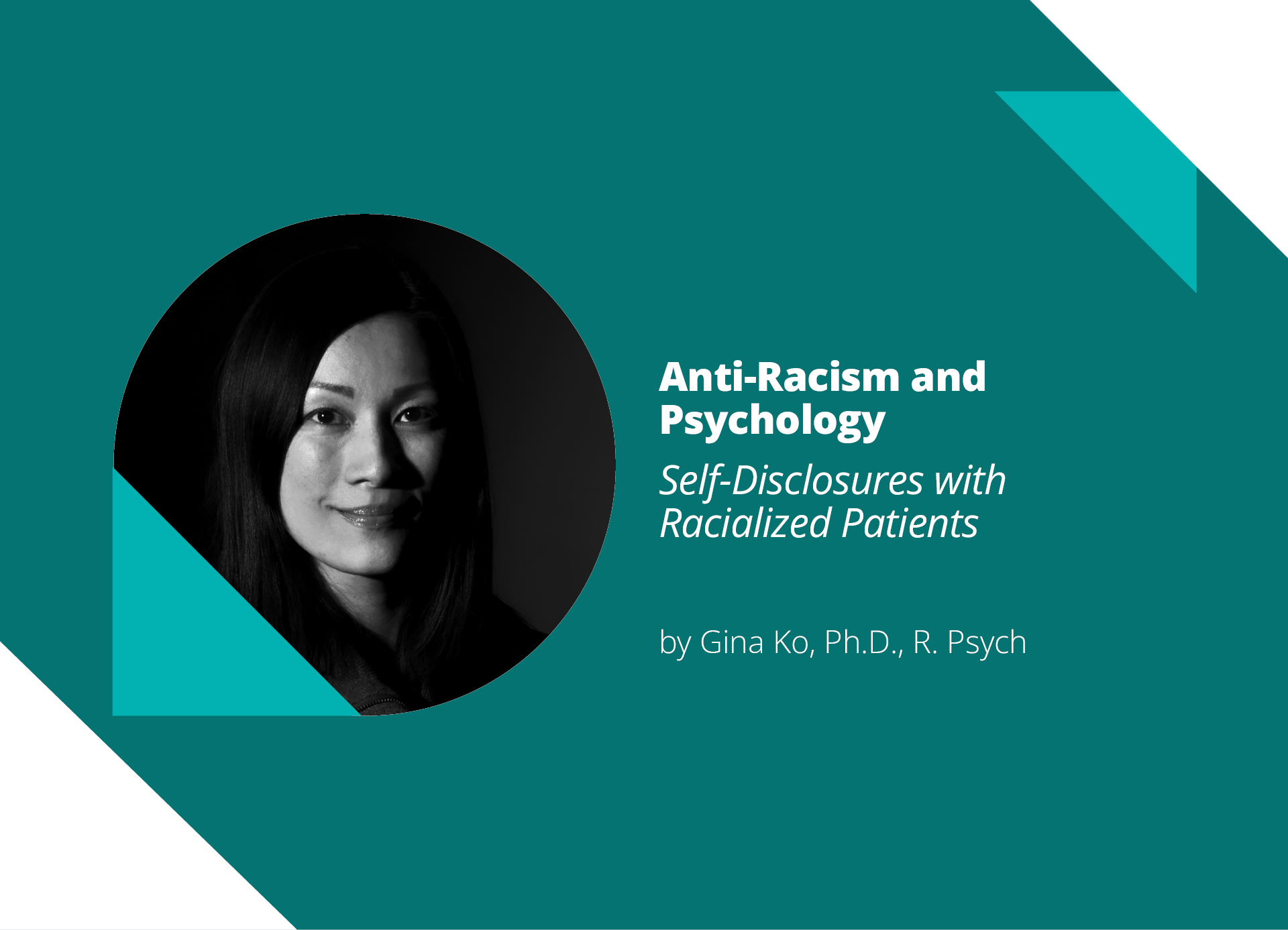
3 minute read
Anti-Racism and Psychology
Self-Disclosures with Racialized Patients
By Gina Ko, Ph.D., R.Psych
As a Registered Psychologist working with many Asian and racialized patients, I have learned that self-disclosures are important for relationship-building.” a Registered Psychologist working with many Asian and racialized patients, I have learned that self-disclosures are important for relationship-building. When I was enrolled in my Master of Counselling program, we often discussed appropriate self-disclosures. As an instructor at two master’s programs, I bring forth this topic to discuss with learners.
I often use the micro skill of transparency to state that I have some similar experiences growing up. For example, I might say: “I know my experience is not the same as yours, and I do not fully understand what you lived through as a young person. I can hear that you have an absent father and may not feel loved the way you want by your mother. I also did not have a father in my life as he left to return to Asia several years after we came to Canada. My mother was not able to provide the emotional connection and support, and now I know she did not know how.” This kind of self-disclosure may be discouraged in counsellor education training. However, I see how patients feel heard and that I connect with them on a more profound level. Some say they feel seen and validated. I often apply the decision-making criteria of whether such a disclosure would be helpful to the patient. It is not about me; it is about whether my words could help patients see themselves, learn ways to shift their perspectives, have more agency, and begin a growth journey of self-discovery.
I have learned that self-disclosures are important for relationship-building.
For younger patients who struggle with school and the pressure they feel from parents wanting them to complete international baccalaureate or advanced placement programs, I may disclose that: “School was hard for me. I did not like it, did not do well, and was fortunate that it was not that difficult to get into post-secondary those years ago.” When they hear that I was not a perfect student, some are surprised because I have a doctorate, and they seem to be more at ease sharing openly.
As an anti-racist practitioner, I explore discrimination, microaggressions, and racism. I disclose moments when someone has asked where I am really from, asked for my real name, commented that I am “pretty” for a Chinese woman, and used racial slurs. I share these moments intentionally to validate how awful it feels to be othered, to be seen as a perpetual foreigner, and to feel that this is not my country. With such disclosures, they tell me they do not feel “crazy” anymore even though people in their lives may invalidate or disbelieve them, or suggest that they can’t take a joke.
These are only a few of many examples of self-disclosures. I encourage mental health practitioners to practice this skill with care, consideration, and heart so patients can see us as human and see that there is common humanity in suffering.

